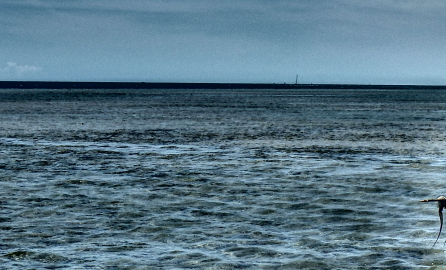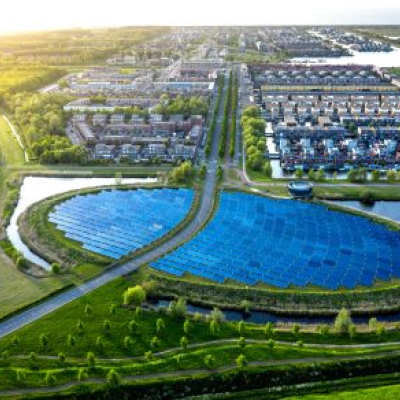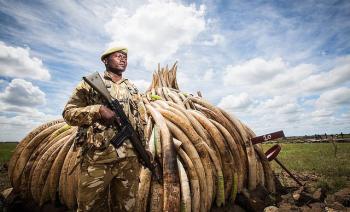@media (max-width: 1333px) { .mobile-img { margin-left:0px !important; } .mobile-video { margin-right: 0px !important; } .mobile-quote, .mobile-table { display:none; } } .drop-cap { font-size: 6em; float: left; line-height: 75px; padding-right: 8px; padding-left: 0; }
Our Sea Our Life works with vulnerable communities on the coast in the Province of the Cabo Delgado in the north of Mozambique to support the conservation of marine biodiversity and sustainable livelihoods.
We caught up with Isabel Faria de Almeida, Head of Cooperation at the EU Delegation to Mozambique, to discuss this EU-funded project.
With a coastline stretching for close to 2,500 kilometres, Mozambique’s shores are home to a wealth of natural resources and marine biodiversity. The discovery of large gas reserves and a growing coastal population, however, have put increased pressure on large areas of seagrass, coral reefs, and mangrove forests the region is home to.
“Marine life is really a source of livelihood for the coastal communities,” said Isabel Faria de Almeida, Head of Cooperation at the EU Delegation to Mozambique. While conserving these natural sites is important in its own right, their survival will both depend on, and contribute to, the continuing development of coastal villages.
Located between the Rovuma River Basin and the port of Mocimboa de Praia, in the most Northern Province of Cabo Delgado (bordering to Tanzania), the EU-funded project, known as Our Sea, Our Life, aims to support communities in the sustainable use of the coastal waters. “The right use of the coast is very important for Mozambique,” Faria de Almeida said, “and this also includes addressing coastal erosion and conserving the mangroves – which have a key part to play.”
Six communities were selected for the project based on their dependence on the sea for their livelihoods. The communities were included in the development of the project in a participatory manner and engaged closely in improving their management of marine resources and spreading ecological awareness. “The name was chosen because our life depends on our sea – this is the philosophy and spirit of the project,” said Faria de Almeida.
The social side of conservation
The Zoological Society of London in partnership with a local NGO, Association for the Environment (AMA), have played the implementing role – and incorporated a social analysis at the core of its intervention.
“When you work with a community, you have to have their buy in – because if they are not convinced, you will not have any results.”
“Mozambique is an extremely poor country,” Faria de Almeida said – with low rates of education resulting in the use of unsustainable practices in what remains a largely unprotected natural zone. The response to these problems has ranged from providing training on sustainable fishing techniques to improving access to financial services like savings funds and loan associations.
“The women are a specific target, because they are the ones who trade, have the contacts and work a lot with these marine resources,” Faria de Almeida said. With female illiteracy rates at more than 50%, involving women directly has been a way of empowering them. “It was very good to see their enthusiasm and their openness to learn and to improve – not only their lives but the lives of their families,” she added.
Through the implementation of the Village Savings and Loans Associations (VSLAs) and capacity support for diversifying livelihoods and the development of economic alternatives to fishing, the initiative also hopes to contribute to increasing the region’s resilience to climate change.
A wider net
Our Sea Our Life has played an active role in engaging with the government of Mozambique and the fisheries ministry. “It’s very important to improve the institutional capacity of the area,” Faria de Almeida said. “We are also working with the private sector – with the goal of creating the conditions for people to invest a bit more, and have a better life.”
Exchanges with fishermen communities between Madagascar and Mozambique have been fostered under the project, with the Mozambique Channel shared between them. “These proved helpful as these communities are faced with similar challenges. You learn by exchanging ideas, of course,” said Faria de Almeida.
But certain challenges remain. The discovery of gas reserves, for instance, poses a question as to the role different actors will play in its development. “The discovery is fantastic, because if it’s managed in an appropriate way, populations can benefit from it,” Faria de Almeida said. “On the other hand, there are huge risks if it’s not managed sustainably.”
|
Watch Isabel Faria de Almeida discuss Our Sea Our Life here: |
Regional politics will continue to pose a challenge as well. “It’s important to strengthen the institutions and better educate the population,” Faria de Almeida said, referring to the recent terrorist attacks in the Mocimboa da Praia port in March.
Word of mouth has played an important role in the project’s success – the sustainable practices have now spread beyond the six targeted communities, according to Faria de Almeida. “It’s very important to understand that when you work with a community,” she said, “you have to have their buy in – because if they are not convinced, you will not have any results.”
While the project is still ongoing, the initial results look promising. “We’ve reached around 7,000 people,” Faria de Almeida said. “Today, they will be able to cope with all the challenges linked to the coastal ecosystems in a better way.”
Image credit: © Rebecca Short
This article was written by Craig Hill, Journalist and Content Editor at Capacity4dev.







Log in with your EU Login account to post or comment on the platform.